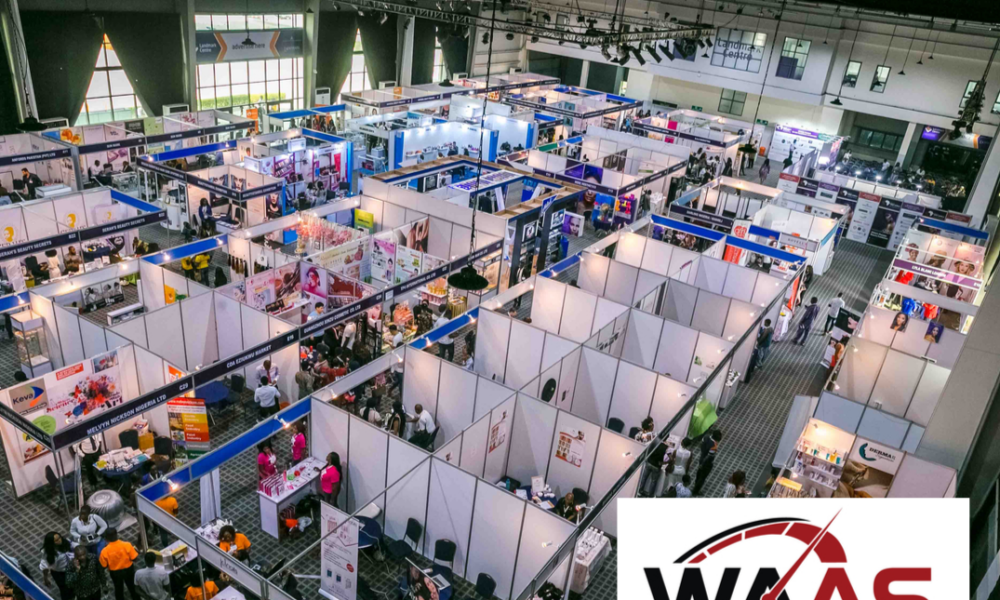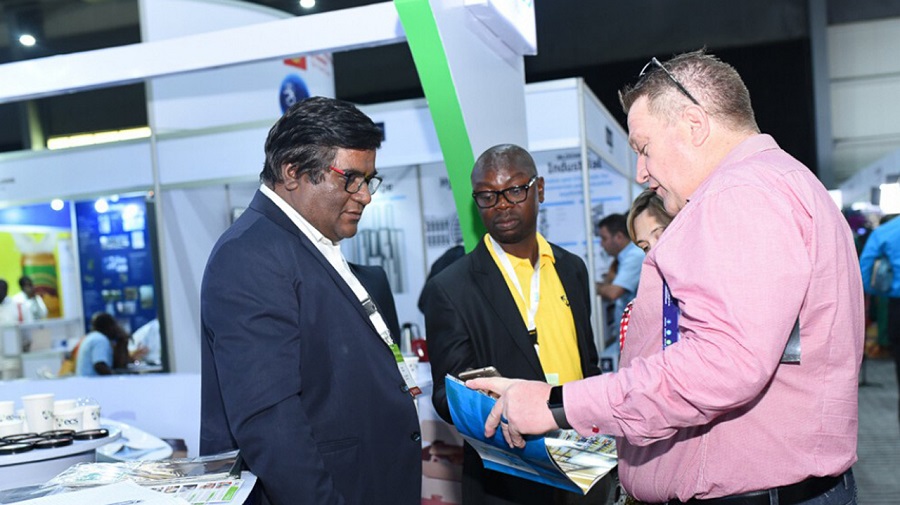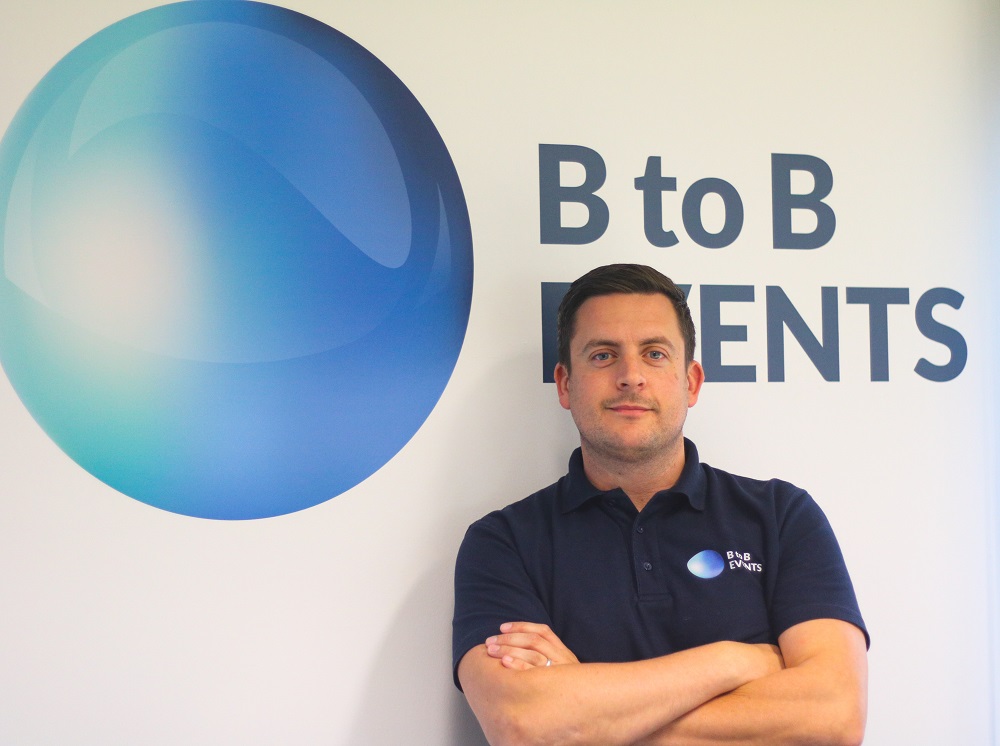Jamie Hill is the Managing Director of B to B Events, organizer of the popular West Africa Automotive Show (WAAS) holding in Lagos May 16 to 18. He had a chat recently with Frank Kintum on the show and other related issues
What will be different in the 2023 edition of the West Africa Auto Show (WAAS)?
The 2023 edition of WAAS will be by far our largest edition to date, in fact the exhibition will be over three times larger than any previous edition. The exhibition will span across two halls of the Landmark Centre, with a record number of exhibitors from all over the world showcasing the latest products and technologies that the global automotive aftermarket has to offer.
2023 will see the over 150 exhibitors, including over 30 exhibitors from China – who are returning for the first time since the pandemic. We are also delighted to work with the Automotive Components Manufacturers Association of India, who will be joining us for the first time to host 20 companies as part of their national pavilion. Which is really exciting.
Perhaps the most exciting addition to this year’s WAAS, will be the WAAS Conference. We received a lot of feedback last year from our attendees that they would like to see a conference as part of the event, so we have listened and we are delighted to introduce Mr. Luqman Mamudu, former Director of Planning and Strategy, NADDC (National Automotive Design and Development Council), as the conference chairman. The conference will be titled Transition to sustainable, quality automotive parts supply in West Africa’ and will aim to tackle 3 key things:
- To examine and evaluate the Nigerian automotive parts market structure, with a view to identifying the gaps in value delivery.
- To examine the existing and potential industry capacity in assembly and automotive parts supply
- To evaluate issues around the global automotive parts and components supply terminals across West Africa
It is all free to attend and we hope as many of the automotive industry professionals from across the country can make it. We want to show the full potential of the regional automotive industry to the global market and give Nigeria an annual meeting place for the industry to share knowledge, do business and drive things forward.

How have you been coping with the challenges?
Every exhibition brings its own challenges, however, this year has been slightly unique with the disruption caused by the recent elections and also the cash crises faced a last month. However, things certainly seem to be moving forward now and we are delighted with the significant increase in interest levels for this year’s edition.
Aside from the Show, what are the other side attractions?
As mentioned this year’s main attraction, exhibition aside, will definitely be the conference. We have some fantastic speakers confirmed and some really key topics will be addressed with an aim of bringing the industry together to tackle key issues and drive things forward.
We will also be showing our appreciation to everyone who has supported the growth of WAAS this year by hosting an exhibitor, speaker and VIP drinks reception on the evening of May 16th at the Landmark Beach.
Who are the primary targets of the show?
I expect that the inaugural conference of WAAS and the show itself will deepen demand for new parts in Nigeria. The dominance of used parts potentially undermines any attempt at local manufacturing as they are far cheaper than the original new ones and are perceived as OEM [original equipment manufacturer] standard.
Another adverse impact of the full reliance of fully built automotive import is that it certainly constitutes a strain on the balance of payment position and missed opportunities to create employment. This has the potential to undermine the economy. It is particularly worrying to me because 70% of this is accounted for by pre-owned vehicles and used parts obtained from salvage vehicles.
I will expect targeted discussion of issues around the status of the Nigeria automotive sector and indeed that of West Africa. This will include the need to create a conducive investment environment in Nigeria and the economic region, the potential for a credit purchase scheme to drive demand for vehicles and parts, and potentials to grow automotive local content.
Above all, the May 2023 conference outcome will be timely and useful in strategic policy formulation for intervention in the automotive industry by the incoming government of Nigeria in the same month.
What does a visitor to the show stand to gain?
All visitors stand to gain an immense amount from attendance to both the exhibition and conference. The sheer volume of new products being showcased from all over the world, some for Nigeria for the very first time, offer businesses the opportunity to get ahead of the competition, gain competitive advantage and bring new products to market.
The conference, offers unique insight from industry leaders who have navigated the consistent and every changing challenges that both policy and economic factors have brought over the past decade or so. It is an opportunity to put your questions to the experts, share best practice and increase knowledge from both a technical and business point of view.

Is there any government involvement?
We have fantastic speakers from different Government bodies including the President of the ECOWAS Commission, H.E. Dr. Omar Alieu Toray, the former DG of the NADDC, Eng. Aminu Jalal and Dr. Isemeude the former DG of NASSIMA. With more still to be confirmed.
We also have Government involvement from overseas on the exhibition floor with national pavilions organised by Indonesia, India, and China.
All of which will provide a unique insight into some of the markets leaders and shapers both past and present.
Finally, what is your impression of the Nigerian auto market?
I think that the increased interest that we have received this year speaks volumes for the opportunity offered to the market.
Prospects for a flourishing Nigeria automotive industry remain high. It has a large domestic market of a population of 200 million people and the middle class is growing.
The recorded 14 million vehicle stock on Nigeria roads remains a huge opportunity for aftermarket. Nigeria has a strong raw material base especially of petrochemicals.
Nigeria has a long way to go to reach its potential, but it is that potential that I truly believe in and why I continue to invest in this wonderful country.













